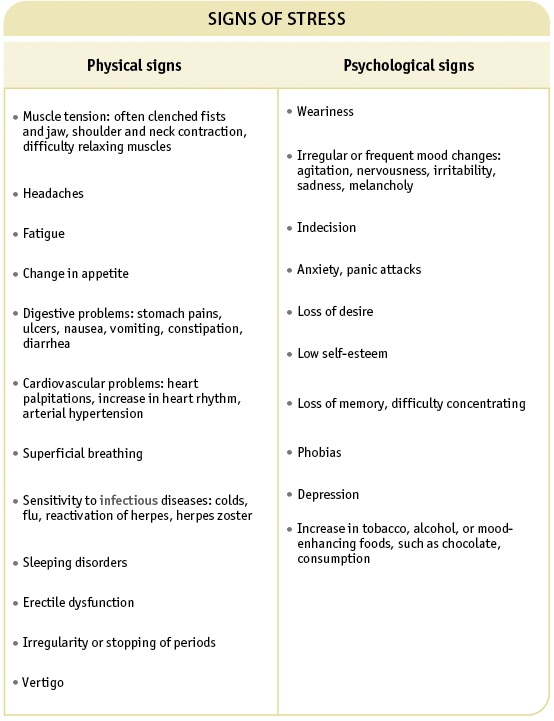
Stress control
Stress is an increasingly widespread disease, due in most part to our lifestyle. Underestimated for a long time, its repercussions on the body are now known and the methods of fighting it are becoming increasingly popular.
Recognizing stress
Stress is a psychological response of the body to what we perceive, consciously or not, as aggression. It is accompanied by physical and psychological symptoms of varying intensity, depending on the individual, but are aggravated when stress becomes chronic. Recognizing the signs of stress, even if delayed, is the first step in controlling it.

Stress Management
To manage stress, its causes must be recognized first: family obligations, daily management, overburdened schedule, academic success of children, conflicting family or professional relations, performance desire, deadlines, traffic, lack of privacy in public transportation, etc. Subsequently, several approaches may be followed to attempt to ease its effects.
|
 |
|
|
|
Also see:
In the Visual Dictionary
In the encyclopedic capsules :
- Burnout, burned by the job!
- A balanced diet
- The nervous system: more than 90,000 miles of sensations!




